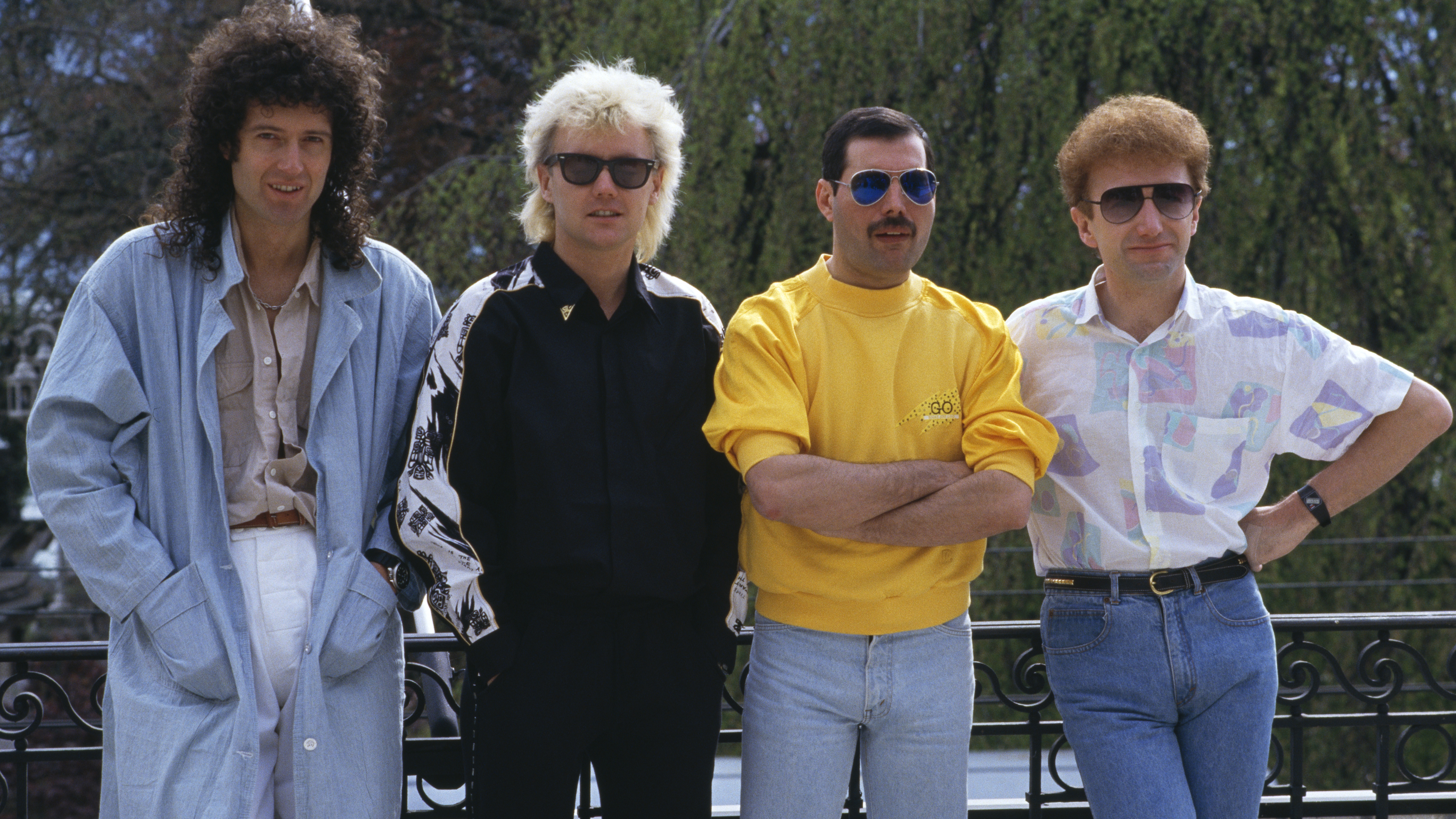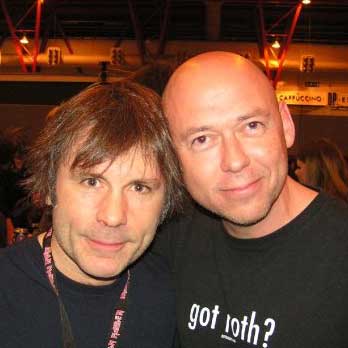“We pillaged a few things from Freddie’s solo work and refashioned them. It was a great labour love”: Brian May recalls how a Queen album was created after the loss of Freddie Mercury
Plus: the one thing that was 'sacrosanct' in Queen's songwriting process

Want all the hottest music and gear news, reviews, deals, features and more, direct to your inbox? Sign up here.
You are now subscribed
Your newsletter sign-up was successful
It was in 1995, four years after the death of Freddie Mercury, that Queen’s final album was released – and as guitarist Brian May said, it was a project that was both challenging and rewarding.
The album was named Made In Heaven, and it was created using some of the final vocal and piano recordings made in Mercury’s lifetime.
These recordings were subsequently enhanced by May with drummer Roger Taylor and bassist John Deacon at the band-owned Mountain studio in Montreux, Switzerland.
In a 2017 interview with MOJO magazine, May recalled of these sessions: “Suddenly we were back in the studio, Roger and John and I. We’re looking at all this stuff, and we’re thinking: this is what we created, this has been an enormous part of our lives.
“So we really dived into it with great passion and energy. And there were moments of great joy.
“Also for that album we pillaged a few things from Freddie’s solo work, and refashioned them, which was a great labour love.”
The song Made In Heaven was first recorded for Mercury’s solo album Mr. Bad Guy and released as a single in 1985.
Want all the hottest music and gear news, reviews, deals, features and more, direct to your inbox? Sign up here.
“Made In Heaven, the track, I always loved it,” May said. “But Freddie merely sketched it on his solo album, with a couple of synths and drum box.”
The version that featured on the Made In Heaven album was a far more lavish production, created by May with Queen’s trusted engineer, co-producer, mixer and keyboard player David Richards.
“I spent months creating a panorama for Made In Heaven,” May said. “But it eventually got too big for me and I had to call in David Richards to get it all under control.”
In that same interview May also discussed Queen’s entire body of work.
Referring back to classic albums from the ’70s such as Sheer Heart Attack, A Night At The Opera, A Day At The Races and News Of The World, May said: “They’re not perfect. Nothing’s perfect. There are little flaws, but the flaws are almost as much a part of it as the success of it.”
He also described the group dynamic and the sense of rivalry between the four of them as songwriters.
Famously, they could all write hit singles.
Mercury’s hit songs included Killer Queen, Don’t Stop Me Now, Crazy Little Thing Called Love, We Are The Champions and the mother of all rock epics, Bohemian Rhapsody.
Roger Taylor’s included Radio Ga Ga, A Kind Of Magic and One Vision (the latter credited to Queen but based in Taylor’s idea).
John Deacon wrote Another One Bites The Dust, You’re My Best Friend and I Want To Break Free.
And May wrote We Will Rock You, Fat Bottomed Girls, Flash and Hammer To Fall.
May told MOJO: “We were very aware, quite early on, that we had a good balance of talents.
“The convention with us was: somebody brings in a song, puts it on the table, we all mess with it, change it, evolve it, and then the person who brought it in has the final say on its final form.
“But your song is your baby, and you get pretty emotional about it. You’re sort of fighting for your life when you think that an album is going to come out that doesn’t have your voice on it the way you want it to be. And I find that’s true of life in general, not just making albums. That feeling of being roped out of a situation is a powerful and dangerous thing.”
He continued: “I think we had an interesting structure of working, because obviously we hammered out all of the musical stuff together in the studio and on the road, but there was a kind of bedrock of ‘what is this song is about?’ which wasn’t touched.
“The person who brought the song in would have that knowledge inside him but it wouldn’t be discussed. That was sacrosanct.
“We had an unwritten law that you don’t pull the lyrical side of a song to bits. Everybody writes songs about what is around them, but unconsciously the songs are always about what is inside them as well.
“I think that’s universally true. So we unconsciously regarded that as private territory and not to be discussed.
“This changed later on. I remember sitting down with Freddie and speaking about It’s A Hard Life, and hammering out every word of every line together, because we were actually talking about what this song meant.”
The same was true of one of the last songs Queen recorded in Mercury’s lifetime.
“I remember Freddie and I sat for a long time working on the lyrics for The Show Must Go On,” May said. “He wasn’t very well, but he sat for a few hours working on a couple of lines.
“And okay, there was still a level beyond which perhaps we didn’t look, but as far as the story of the song went we were hammering it out together.
“Then he disappeared and I didn’t see him for quite a while because he was quite ill at that point, and I finished off the song using those bricks that we built together, the cornerstones.
“I think Freddie and John [Deacon] also had moments of getting close to the inner meaning of a song," May said. "Freddie and John worked on Another One Bites The Dust very closely.
“John wasn’t a person who could sing, so John would speak it to Freddie and Freddie would start to sing it, and I think during that process they would unravel it: what is this thing that we’re doing?
“And I think it was true between all four us.”

Paul Elliott has worked for leading music titles since 1985, including Sounds, Kerrang!, MOJO and Q. He is the author of several books including the first biography of Guns N’ Roses and the autobiography of bodyguard-to-the-stars Danny Francis.
You must confirm your public display name before commenting
Please logout and then login again, you will then be prompted to enter your display name.
